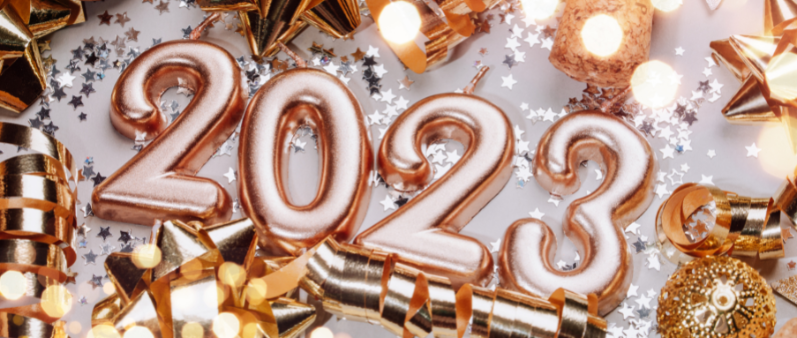
Do you make New Year’s Resolutions? Some surveys show that around 38% of U.S. adults do, but only about 9% of people successfully keep them. The most common resolutions involve developing healthier habits, starting new hobbies, and being more generous. Why do people choose this time of year to make big changes? Let’s dive into the history of New Year’s and the resolution.
The New Year’s Holiday in Different Cultures
The celebration of the New Year on January 1st originated with the Romans, who named the month after their god Janus, the deity of beginnings, endings, thresholds, and gates. They exchanged good wishes to each other, along with gifts of figs, honey, dates, and special coins. They baked cakes of spelt flour and salt, which were burnt on altars as offerings to Janus, who was often depicted as having two faces, one facing toward the past and one toward the future.
The practice of marking the new year may date back to the ancient Babylonians, who celebrated their new year in March during the 12-day festival of Akitu. Crops were planted, affirmations of loyalty were made to the king, and promises were made to the gods to ply their favor for a prosperous new year.
In Judaism, the marking of the new year is held in autumn and is called Rosh Hashanah. Rosh Hashanah involves 10 days of repentance, self-examination, and renewal, closing on Yom Kippur with a day of atonement.
Many eastern cultures celebrate the Lunar New Year each spring. Though resolutions aren’t usually a formal part of the celebration, it is a time for people to wish for luck and prosperity in the coming year.
The Islamic New Year is also based on a lunar calendar called the Hijri, which marks the Prophet Muhammad’s departure from Mecca. Muslims often use this time for spiritual reflection, study, and goal setting.
The Celtic celebration of Samhain, also called Halloween, All Saint’s Day, or All Souls’ Day, is held from October 31st to November 1st and marks the new cycle of the Wheel of the Year. Bonfires are lit, and people connect with their ancestors and spirits from beyond the veil.
What is the Origin Making Resolutions on New Year’s and the Etymology of the Word Resolution –
The word resolution comes from the Latin word resolutionem, meaning, “the process of reducing things into simpler forms.” It didn’t come to mean “steadfastness of purpose” until the 1580s and wasn’t used in reference to a New Year’s intention of betterment until the 1780s. The tradition of making resolutions at the New Year was born out of religious practice but has since become more of a secular custom.
Resolution Failure
Whatever time of year people celebrate the turning of the New Year, it’s a popular occasion for setting goals for change and improvement, yet so many fail. Why? Here in the Northeast, a lot of it has to do with the weather. It’s much harder to eat salad and get to the gym when it’s cold and dark outside. Many people set the best intentions for themselves only to fail and then beat themselves up about it. In fact, Blue Monday, the third Monday of January, is now known as the most depressing day of the year due to a combination of bad weather, holiday debt, and the breaking of resolutions, thanks to low motivation.
Most life improvement experts agree that rather than making bold, cold-turkey decisions, incremental change with small achievable goals is the better path forward for developing new habits or making lasting changes. If so, why should anyone wait for a specific calendar day to start taking steps toward their goals? If someone wants to change their life, they should start small and start today!
Instead of making a broad goal of “eating healthier,” make an incremental change like adding more vegetables to a meal 2 times a week. Instead of deciding to meditate for an hour every day, try meditating for 1 minute every day for a week and then adding an additional minute each week until the end of the year. Instead of deciding never to drink alcohol or use tobacco again, seek help with reducing usage, research addiction programs, or download a tracking app.
And if one of your New Year’s Resolutions is to speak a new language, try a Pimsleur course to learn conversational skills in one of over 50 languages by doing just one lesson a day. With our Pimsleur app, you can now learn a new language while cutting up vegetables for your salad or while lifting weights at the gym.
No Comments for "New Year’s Resolutions Around the World"